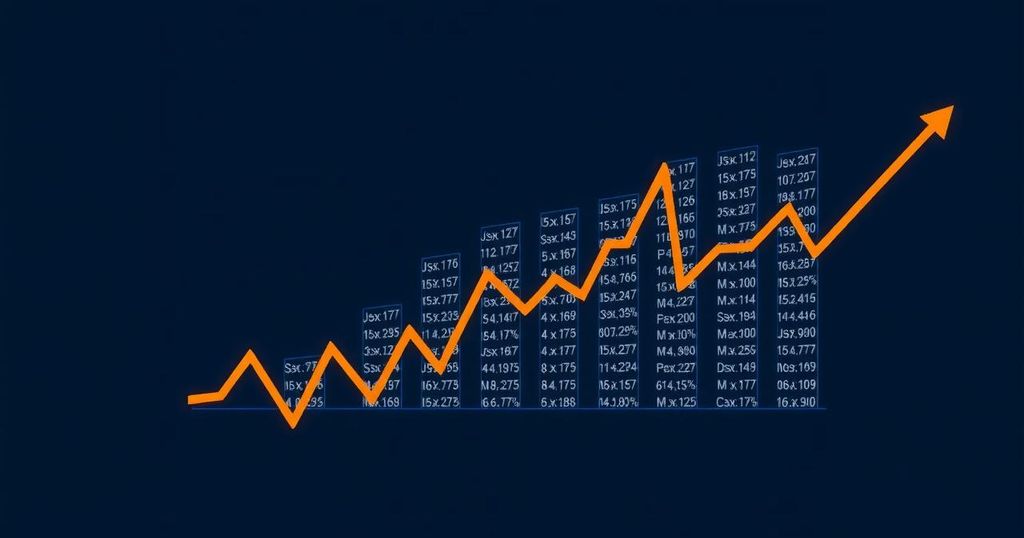Economic Outlook and Voter Sentiment as Election Day Approaches
The American economy is showing signs of strength ahead of Election Day, with a reported G.D.P. growth of 2.8 percent in the third quarter. Despite this growth, many voters remain dissatisfied with economic conditions, viewing it as merely “fair” or “poor.” Polls indicate economic issues are pivotal for voters, with Trump maintaining an edge over Harris in economic trust, though Harris is closing the gap. Democrats and Republicans are strategizing around essential issues such as immigration and abortion rights as the election approaches.
As the nation approaches Election Day, the economic landscape appears stable, according to a recent government report indicating that the Gross Domestic Product (G.D.P.) rose at an annual rate of 2.8 percent during the third quarter. This economic growth signals a recovery from pandemic-induced downturns, with consumer spending increasing and inflation showing signs of decline. Despite these positive indicators, a significant portion of the electorate continues to view the economy unfavorably, labeling it as either “fair” or “poor.” This prevailing discontent is likely to influence the upcoming presidential election. A recent Times poll highlights the economy as the foremost concern for voters, a sentiment that has been consistent throughout the polling conducted this year. Furthermore, the poll reveals that voters exhibit a greater inclination to trust former President Donald Trump over current Vice President Kamala Harris regarding economic matters; however, Harris has narrowed the trust gap, reducing it from 13 percentage points to just six in the past month. Michael Gold, a political analyst covering Trump’s campaign, remarked, “When Trump taps into voters’ concerns over the economy, it can be very effective. A lot of voters see the economy as a referendum on the current administration, and when Trump focuses on that, he can be very strong.” Notably, Trump’s tendency to divert attention from economic issues to matters such as immigration presents a challenge for him, as he continues to prioritize topics he believes resonate more with his base, despite counsel from his advisors to maintain a focus on economic discussions.
In the context of U.S. politics, economic performance is a pivotal factor that influences voter sentiment and behavior. The recent announcements regarding G.D.P. growth may offer a favorable perception of the current administration’s handling of economic issues. However, the discrepancy between positive economic figures and public perception underscores a complex relationship; while voters acknowledge improvements, many remain dissatisfied, particularly due to past experiences with high inflation. The interplay between these economic indicators and voter’s psychological evaluations of their financial situations is crucial as the nation heads toward the electoral process.
The current economic indicators present an image of growth and stability. However, voter perception remains largely negative, which could have significant implications for the upcoming election. Candidates must navigate this complex landscape, where the economy is paramount in influencing electoral outcomes. The dynamics between Trump and Harris will likely hinge on how effectively they can resonate with voters on economic issues while addressing their broader concerns.
Original Source: www.nytimes.com




Post Comment